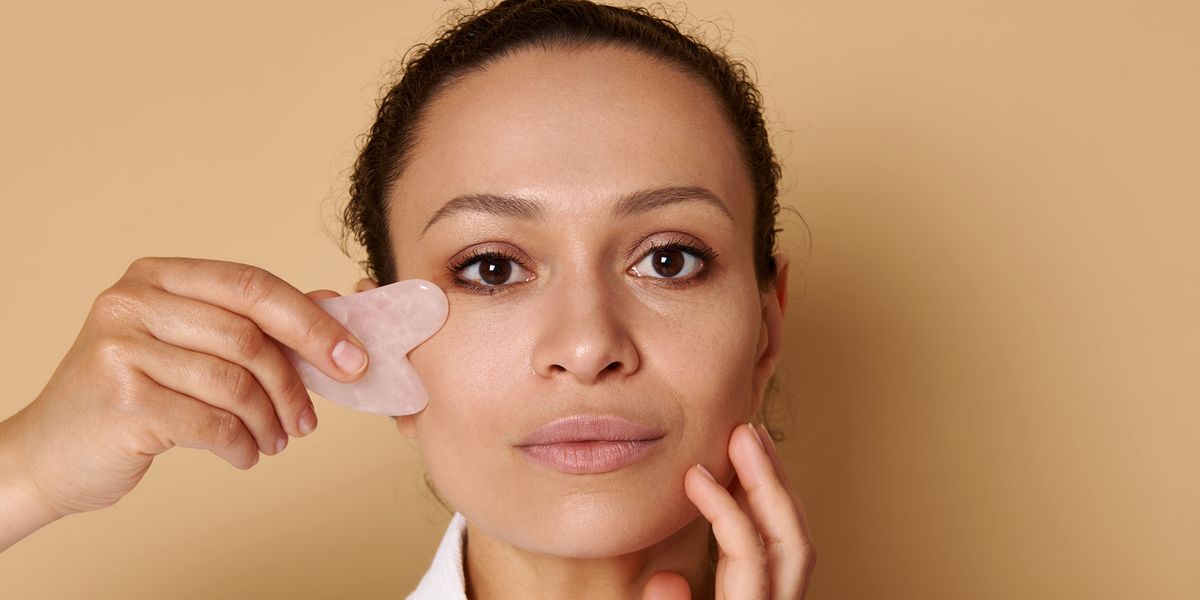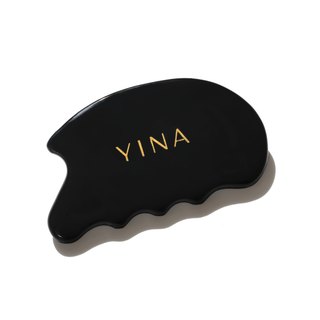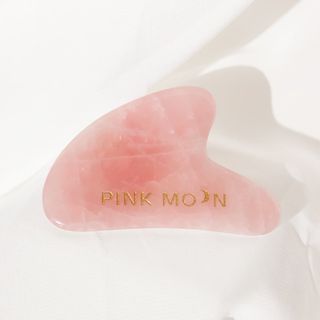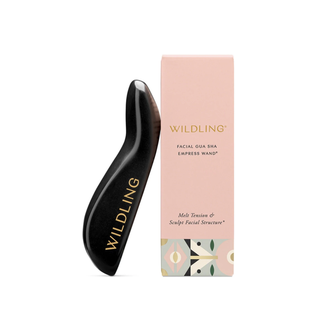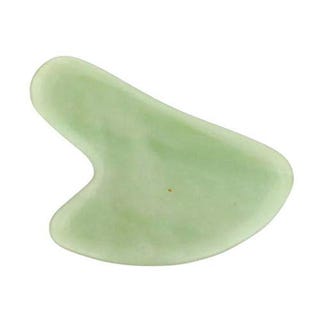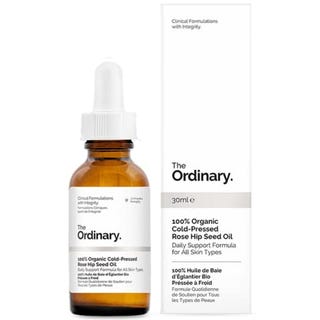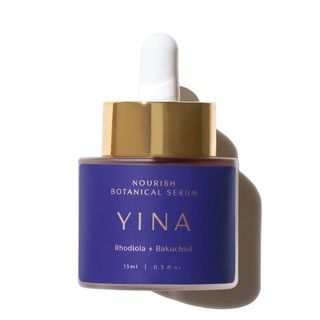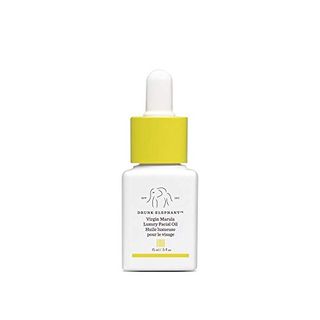Look to any social feed, and you’ll probably run into someone preaching about the skincare wonder that is gua sha. The longtime form of Traditional Chinese medicine has made its way into the hands of, well, everyone—and for good reasons. With promises to increase blood circulation, depuff and tighten skin, it’s no wonder everyone is excited to get their hands on this tool.
But while it may look simple in a 30-second TikTok video, the history, benefits, and skills needed to get the most out of your facial tools needs a little more explaining, which is why we reached out to four skincare experts: Founders of YINA, Dr. Ervina Wu and Angela Chau Gray, CEO and Co-Founder of Pink Moon, Lin Chen, and celebrity aesthetician and dermatological nurse Natalie Aguilar for answers on all things gua sha. From how to use your gua sha, to what tools to avoid, it’s all here. Here’s what to know:
What is gua sha?
The soothing skincare practice has a centuries-old past. The form of traditional Chinese medicine has been used for over 4,000 years, Chen tells ELLE.com.
As for where it got its name in Chinese, gua means “to scrape,” and sha means “petechiae,” which are tiny, flat, red or purple spots on the skin. “It’s commonly used in Chinese medicine to scrape the skin—commonly on the upper back,” explains Wu and Gray. This technique helps “invigorate blood flow, release heat-toxins, stimulate lymphatic drainage, activate various points of the body, and stimulate an immune response bringing beneficial cells to the area.” In other words: you’re actively pressuring your skin to get rid of the unwanted toxins and liquids hiding underneath your skin.
What are the benefits of gua sha?
The traditional Chinese medicine practice can benefit you in a lot of ways, externally and internally as well. Some of its impressive results include:
- Increase circulation
- Relieve facial and muscular tension
- Breaking down fascia adhesions
- Helps with collagen production
- Shortens acute illnesses, like colds and the flu
- Reduces inflammation
- Aids in lymphatic drainage
Are there any side effects to using a gua sha?
While gua sha is generally considered safe, potential side effects can include soreness, bruising, and light discoloration. These side effects can happen if you’re applying too much pressure to the skin or your skin is dehydrated.
Wu and Grey highly recommend seeking out advice and learning the proper techniques from a qualified practitioner to avoid any side effects.
How should I use my gua sha?
Chen’s step-by-step routine for gua sha is as follows:
- Before you start, make sure your face is clean and ready for oiling.
- Next, prep the skin with an emollient like a face oil or a balm that’s silky and doesn’t absorb right away to avoid tugging your skin.
- Keep the stone as flat and close to the skin as possible, ideally at a 15º angle, so you don’t create unnecessary friction against your skin.
- Apply gently pressured outward strokes to the neck and face.
- If you have an active acne breakout, only do gua sha on the chest and neck. This will help to increase circulation and decrease inflammation, without irritating your acne.
And if you’re a visual learner, check out YouTuber Gothamista’s video on her facial gua sha routine. In the video, she shares the routine and tips her TCM practitioner taught her–and it’s incredibly calming to watch.
Which gua sha should I choose?
When selecting a gua sha tool, all four experts recommending choose one based on preference to your lifestyle and skill set, but just make sure your tool is made from quality stone like bian, jade, or amethyst. The idea is that the better you like the tool, the more you’ll look forward to using it in your skincare routine.
But if we want to get technical, when choosing a gua sha tool, the shape is often more important than the type of stone being used. “Ideally, the tool should be flat, thin, blunt with curved edges,” says Wu and Grey.
If you’re looking for a beginner’s option, we recommend something that’s heart-shaped. Its design easily glides over the contours of the face and neck, it’s easy to hold, and it won’t take up too much room in your makeup bag when traveling. “Ultimately, you want to find the one that feels comfortable and fits nicely in your hand,” says Aguilar. “It shouldn’t feel awkward or intimidating.”
What face oil should I use with my gua sha?
To avoid unwanted friction against your skin when using your gua sha, a hydrating facial oil is key, explains Aguilar.
“When using a gua sha, it’s important to find a really nice facial oil, but note that sometimes one may not have a reaction to the gua sha but the oil used,” warns Aguilar. “Using oils that have too many ingredients, fragrance, or are heavy can cause irritation and breakouts.”
Is there a limit on how much I should gua sha?
Technically, no. This question goes back to the relationship with you and your skin. “Gua sha can be performed whenever the facial skin feels dull, lackluster, puffy, or tired,” explains Aguilar.
If your skin tends to lean more on the sensitive side, the experts recommend not doing it more than three to four times a week. On the other end of the spectrum, if your skin is like mine and doesn’t tend to flare up easily, you’re safe to do it twice a day or whenever you see fit.
This content is created and maintained by a third party, and imported onto this page to help users provide their email addresses. You may be able to find more information about this and similar content at piano.io
